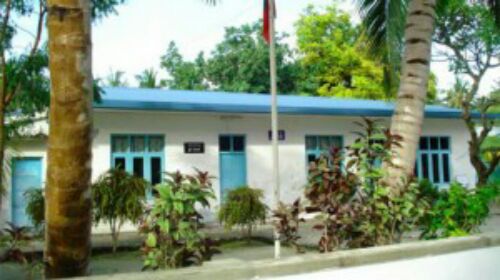Maldivian Democratic Party (MDP) President, Mohamed Nasheed has criticised the government for failing to keep promises made when it came to power almost one year ago.
Beginning by questioning the manner by which President Abdulla Yameen came to power, the former president suggested the election coalition had faltered and investor confidence had not been restored.
While giving an interview to Raaje TV last night (November 11), Nasheed also slammed the government for its failure to respond adequately to the abduction of Minivan News journalist Ahmed Rilwan 96 days ago.
“There is no doubt that Rilwan was abducted. All the information obtained by the police and other separate investigations point to an abduction,” said Nasheed.
Recalling the much-delayed, and once-annulled presidential elections last year, Nasheed reminded viewers that yesterday’s Republican Day has traditionally seen the start of a new presidential term.
“Republican Day has always been the day when the new presidential term begins and ends,” said Nasheed. “However, President Yameen’s gave oath after the assigned date. This raises legitimacy issues with how the Government came to power.”
Last year’s Republic Day saw former President Dr Mohamed Waheed inform the nation that he would stay in power for one week beyond the constitutional end of his term in order to avoid a power vaccum after repeated delays in the poll to find his successor.
The 2013 presidential elections eventually saw the MDP and Progressive Party of Maldives (PPM) candidates contesting the second round, with the PPM’s Abdulla Yameen eventually winning the election after forming a coalition with the Jumhooree Party (JP).
“Recent events have made it clear the that the coalition has failed,” said Nasheed in reference to the government’s acquisition of JP leader Gasim Ibrahim’s Kaadedhoo Airport after the MP spoke against the government’s flagship Special Economic Zones (SEZ) bill.
Nasheed noted that the people in charge of the government right now received a very small percentage of the total votes once the votes from JP supporters were discounted.
Promises broken
Nasheed pointed out that the government made a lot of promises towards the betterment of fishermen – including a pension of MVR10,000 (US$650) which was not included in next year’s proposed budget. But the price per kilo of tuna has dropped from a healthy MVR18 during Nasheed’s government to a mere MVR6 today, he continued.
President Yameen recently announced a foreign policy shift from west to east, partly as a result of the Maldives’ failure to qualify for extended duty-free status for fish exports after non-compliance with international conventions concerning freedom of religion.
Nasheed also attacked the government’s SEZ Act, suggesting that there has been little interest shown by foreign investors even after all the necessary laws and regulations have come to place.
The SEZ act – which offers relaxed regulations and tax concessions – described by President Yameen as a landmark law that will “transform” the economy through diversification and mitigate the reliance on the tourism industry.
While speaking about the proposed 2015 annual budget, Nasheed said that like during Maumoon Abdul Gayyoom’s 30-year regime, the current government has included a large sum as expected earnings which would eventually lead to higher budget deficit.
“For example, expected earnings from SEZ investments is valued at MVR1.5 billion (US$ 100 million). This is ambitious and unrealistic,” explained Nasheed.
The 2015 annual budget includes MVR3.4 billion (US$220 million) as expected revenue from brand new income generating measures including acquisition fees from SEZ investments and the introduction of a green tax on tourism.
A recent MDP budget review concluded that such expectations were unrealistic after stating that even if the government were to obtain MVR1.5 billion (US$100 million) as acquisitions fees at a rate of 10 percent of the investment it suggests an investment of US$1 billion.
The single biggest investment in the country to date was the ill-fated MVR7.6 billion (US$ 500 million) deal with India’s GMR group for the development Ibrahim Nasir International Airport in 2010. A Singapore court of arbitration is currently evaluating the amount owed by the government for the wrongful termination of the deal in November 2012.
The former president described the government’ abrupt terminations of foreign investments as saddening, suggesting that it would decrease investor confidence in the nation.

